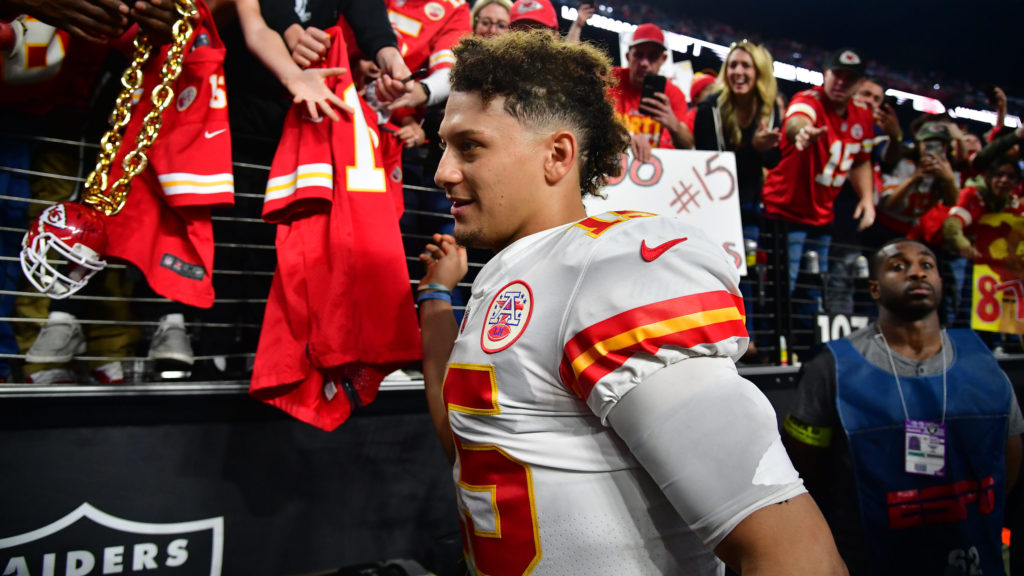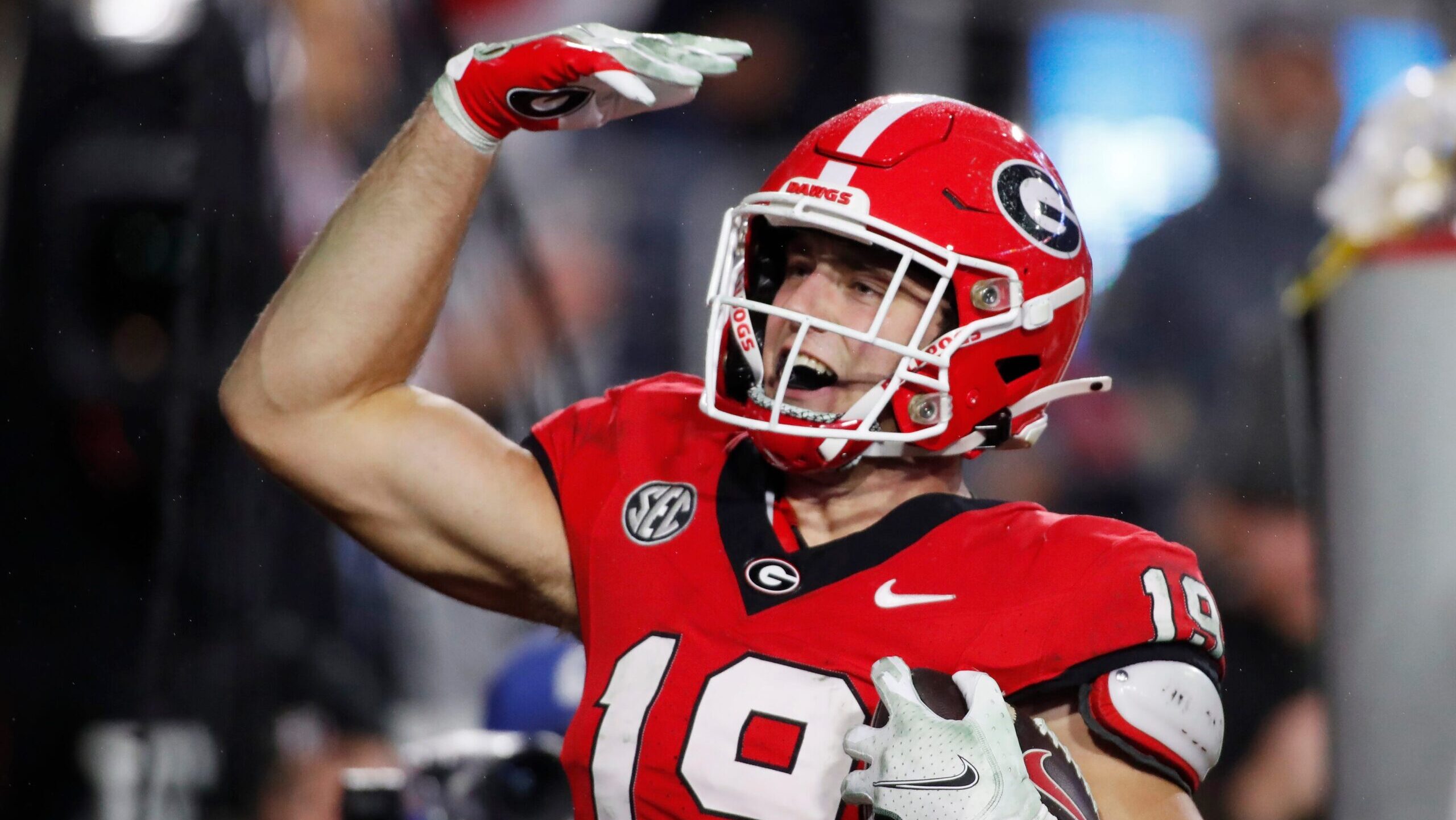Analysis
1/17/23
6 min read
No. 1 Seed Comes With No Guarantee of Super Bowl Glory

The Kansas City Chiefs and Philadelphia Eagles join the playoffs this weekend after battling all season to earn No. 1 seeds with their impressive 14-3 records. Based on the past four years of NFL postseason results, however, their top seeds in each conference are not an indicator of a Super Bowl victory forthcoming on Feb. 12.
The last No. 1 seed to claim the Lombardi Trophy was Philadelphia in the 2017 season, so at least the Eagles can feel positive about their most recent playoff experience as the top seed. That season, Doug Pederson's Eagles, led by backup quarterback Nick Foles, won playoff games over Atlanta and Minnesota in front of their rabid fans at Lincoln Financial Field before upsetting the Bill Belichick- and Tom Brady-led Patriots in Super Bowl LII.
That was the last of a five-year run when No. 1 seeds went on and won Super Bowls. Since then, it’s been tough sledding. Especially for the Packers the past two seasons when they were knocked out at Lambeau in the NFC title game by second-seeded (and eventual champion) Tampa Bay in 2020 and by San Francisco in last season’s Divisional Round.
Top-seeded Kansas City made it to the Super Bowl after the 2020 season, only to fall to Brady’s Buccaneers.
History of the No. 1 Seed
Since 1990, when playoffs were expanded to 12 teams/6 per conference:
| Lost Divisional Round | 18 times | 28.1% |
| Lost Championship Game | 14 times | 22.6% |
| Lost Super Bowl | 18 times | 29.0% |
| Won Super Bowl | 14 times | 22.6% |
In fact, both No. 1 seeds — Green Bay and Tennessee — lost their first playoff game in the Divisional Round last year (the Titans were defeated by the Bengals). No. 4 seed Cincinnati went on to a narrow defeat at the hands of a fellow four seed, the Rams, in Super Bowl LVI.
The No. 2 seeds have had the most success in recent years, with Kansas City beating top-seeded San Francisco in 2019 and the Patriots triumphing over the Rams — also a No. 2 — in 2018. That could bode well for any possible 49ers vs. Bills matchup in Arizona three weeks from now (which makes sense to me as they are the two teams I’m picking to emerge).
Of course, the big difference this year is in terms of home-field advantage in the AFC. The Chiefs will only host the AFC Championship if they beat the Jaguars and the Bengals win in Buffalo this weekend. This is the result of the postponement of the Buffalo-Cincinnati game in Week 17. The league determined if it’s the Chiefs and the Bills, the game will be played at a neutral site — Atlanta.
That’s a good news/bad news situation for the Bills. They could’ve had home-field advantage throughout the playoffs up in cold and snowy Buffalo in front of their passionate fans if they had won the game in Cincinnati due to their head-to-head win over the Chiefs in Week 6. But if the league had not dictated this potential neutral-site matchup, the Bills would’ve been stuck going to Kansas City under this scenario, where they lost a thrilling Divisional Round game in overtime last January (though they did get the win in K.C. this season).
I’ve personally experienced the ups and downs of navigating the playoffs at various levels of seeding. For example, in 1998, as Vikings general manager, our 15-1 team, led by four Hall of Famers (receivers Randy Moss and Cris Carter, defensive lineman John Randle and guard Randall McDaniel), was a heavy favorite as the NFC’s top seed to go to the Super Bowl when we hosted No. 2 Atlanta in the NFC Championship.
In a game that lives in infamy for the Vikings and their fans, we lost after our kicker — Gary Anderson, who had been perfect all season — missed a 38-yard field goal that would’ve put us ahead by 10 points with two minutes remaining. The Falcons tied the score in the final minute and won it in overtime on a Morten Andersen field goal from the same 38-yard distance. I’ve always believed our team felt the pressure of high expectations for a Super Bowl trip to Miami much more than the underdog Falcons that day.
The following year I moved to Tennessee as Titans president, and we entered the playoffs as the fourth seed, even with a 13-3 record. We won road games at Indianapolis over Peyton Manning and at top-seeded Jacksonville to earn a trip to the Super Bowl, where we lost on the final play to “The Greatest Show on Turf” St. Louis Rams, the NFC’s top-seeded team.
Then in continuation of a roller-coaster three-year run, my Titans were the AFC’s top seed in 2000 when we fell to the eventual champion Ravens (a No. 4 seed) in the divisional round. Everyone in Tennessee assumed we would beat Baltimore, return to the Super Bowl, and win it this time. Unfortunately, it was not to be.
For the Chiefs and Eagles, it can be a mixed blessing to be the No. 1 seed. They get the benefit of the bye with a week’s rest before their opening playoff games this weekend. That also can create a little rust as they will be facing teams who are coming in with confidence and flying high off their wild-card victories. This will be the case for the Jaguars and Giants, who won close, emotionally charged games over the Chargers and Vikings, respectively. The Jaguars did so in a monumental comeback, and the Giants won on the road. Both teams were slight underdogs, a precursor to being even more significant underdogs this weekend.
There is always pressure in the playoffs, but top-seeded teams feel it more as they’re expected to win. I speak from experience when I say that’s what the Chiefs and Eagles are feeling this week. And it will also be the case if they advance to next week’s conference title games.
Jeff Diamond is a former Minnesota Vikings general manager and Titans team president. He was selected NFL Executive of the Year after the Vikings’ 15-1 season in 1998. You can follow him on Twitter at @jeffdiamondnfl.






